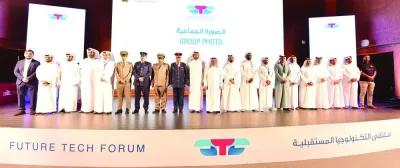Amid water and food scarcity, the climate crisis, armed conflicts, and a growing population with changing consumerism habits, we face great challenges in providing everyone with the resources they need. As the population of developing nations becomes more economically privileged, we see large shifts in supply and demand. For example, as disposable income increases, so does meat consumption. These changes increase food waste and perpetuate existing problems. 70% of the world’s freshwater is used by agriculture and half is wasted. One-third of food produced for human consumption is also wasted. What are consumers, the private sector, and governments left to do in such moments of desperation?
Dana Al Salem, a global tech entrepreneur, investor, and advocate for SDG improvements has provided some suggestions. Dana is passionate about raising awareness for unsolved economic, political, and societal issues. Although the current landscape is daunting for all parties, she believes that small changes will enable us to mitigate risks and create a better future.
Dana has provided some of her expertise to government officials worldwide, including Panama, Serbia, and Morocco. She has recently spoken at inFlavour in Saudi Arabia and the Future Summit in Pakistan. As a keynote speaker, Dana regularly discusses strategies for uniting the public and private sectors to solve global issues.
When looking towards the future, countless concerns come into Dana’s mind, all of which are critical to address. However, every country faces different challenges, whether geographic, economic, or topographical, but there is a common approach in phases, which seems to be delivering results.
Positive changes are already emerging, specifically from the innovation sector. The SDG goals have created a global collective agreement on missions that all countries strive to reach together. However, the pandemic has exposed urgent weaknesses within countries and rapidly accelerated innovation at a rate we have never seen before.
To properly handle the life-threatening problems of climate change, resource scarcity, and economic instability, Dana has proposed the Three P’s framework. Perspective, Purpose, and Pragmatism can be used by countries to mitigate current risks and prepare for the future.
All three categories encourage governments to collaborate with the private sector. By using ‘sandboxes’ where both parties can collaborate, governments can rapidly create and adapt policies that meet the speed at which innovation is moving, whilst the private sector can create investment opportunities and increase the speed at which they tackle challenges. An example where this is happening is agri-tech.
Countries that are succeeding in co-creating public and private innovation projects and following the methodology of the Three P’s are those that are attracting investors, increasing the speed of development, and future-proofing the lives of their citizens.
Dana explains that Perspective is required to approach problems correctly. In our daily lives, we often lose sight of the tremendous progress society has made in the last 200 years. We have improved educational, health, agricultural, and economic outcomes significantly despite the long way we still have to go. Having perspective is what gives us hope for future change.
Hope is the fuel for action, and we channel that action through Purpose. You must create a purpose that will inspire foreign investors, citizens, and partners. Purpose-driven leadership announces your values and vision, it sets forth what you stand for and what you will create. Purpose gives us all courage, unity, and vision. It gives us meaning and focus.
Investors, innovators, and stakeholders must know what role they play in building the future of the country for goals to be met. Pragmatism defines how we get there together by setting clear pathways for all participants to feel empowered. By providing tools and clear communication on what needs are, countries are attracting the right kind of players to help them grow.
Fundamentally, we see through history that humanity has an innate desire to contribute and to make the world a better place, and yet we still have much work to do. According to the United Nations, only 15%of SDG goals are on track to be achieved. Almost 575 million people will still be living in poverty by 2030. We are seeing a dramatic rise in climate refugees, due to unpredictable and severe changes in the health of our planet. Educational, health, agricultural, and other economic challenges all need to be addressed for humanity to survive the consequences of climate change.
Dana notes that emerging trends in innovation underline pivotal ways humanity can accelerate its green transition.
“Evolving technologies are becoming more cost-effective, efficient, and innovative,” says Dana, “For example, we can integrate generative AI and machine learning into daily facets of our lives such as in health, education, mobility, and agri-tech. These developments hold the key to neutralizing the climate crisis and resolving systemic inequities across the globe. Both the public and private sectors should support and foster initiatives, for a greener Earth.”
The climate crisis has never been more critical for humanity to address. The world’s biggest climate event is underway, and the world is standing on a precipice. Either transformative action happens today, or we lose our tomorrow. Government officials and influential people must consider the situation’s severity as we enter an era of uncertainty.
Source link
 Kokani.me Kokani.me
Kokani.me Kokani.me



